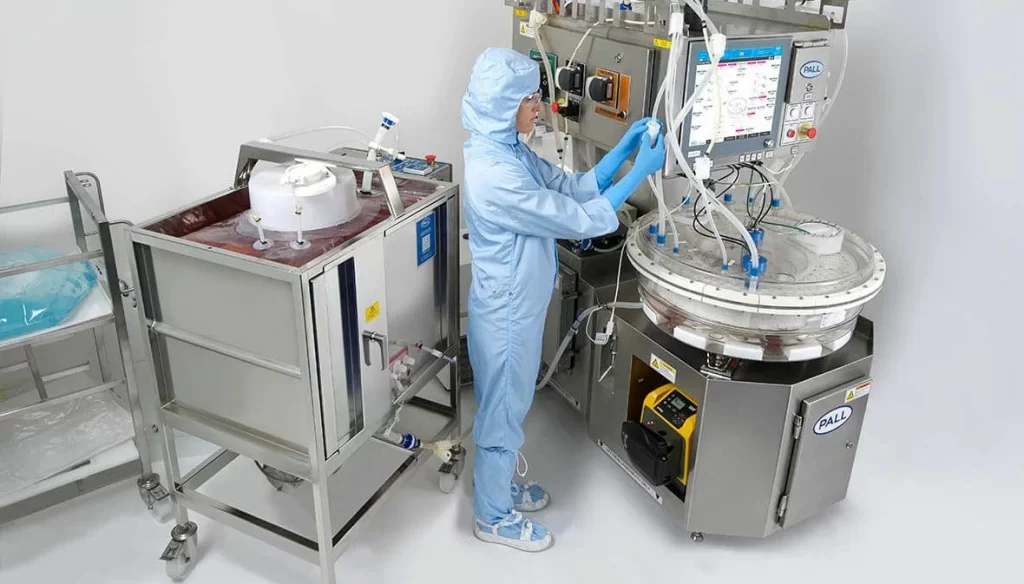Why Bioreactor Equipment Needs RFID Integration
Bioreactors are essential equipment for biopharmaceuticals, cell therapies, and industrial bioprocessing. עם זאת, equipment manufacturers face significant challenges in providing reliable, compliant solutions:
- Data integrity gaps: Manual recording of parameters (e.g., pH, טמפרטורה) can lead to human errors and audit failures.
- Contamination risks: Human intervention during sampling or maintenance can compromise sterility.
- Regulatory pressures: מנהל המזון והתרופות האמריקאי ( 21 CFR and EU GMP require full batch and equipment traceability.
RFID technology addresses these challenges by:
- Automating real-time acquisition of sensor and consumable data.
- Reducing human touchpoints in aseptic workflows.
- Ensuring compliance with tamper-proof digital records.
Competitive Advantage You’ll Gain:
- Provide GMP-compliant, IoT-enabled RFID bioreactor systems.
- Become a leader in smart biomanufacturing solutions.
 Bioreactor Challenges Solved by RFID Solutions
Bioreactor Challenges Solved by RFID Solutions
1.Data Integrity and Audit Failures
Issue: Manual data entry errors in batch records can lead to FDA warning letters.
פתרונות RFID:
- Embed high-memory RFID tags on single-use bioreactor bags to store batch data.
- Automatically synchronize sensor readings (e.g., dissolved oxygen) to MES/ERP systems via RFID middleware (e.g., Siemens RF650R).
2.Contamination in Aseptic Processing
Issue: Manual sampling in SUS (Single-Use Systems) introduces microbiological risks.
פתרונות RFID:
- Use autoclavable RFID tags on sensors and tubing.
- Contactless identification of consumables via fixed readers mounted outside the isolator.
3.Comply with Serialization Regulations
Issue: Non-traceable consumables (e.g., filters, membranes) present a risk of batch rejection.
פתרונות RFID:
- Tag critical components with USP <87> compliant biocompatible RFID tags.
- Track lifecycle data (למשל. sterilization cycles, תאריכי תפוגה) for audit trails.
[צרו קשר] Get a free list of industrial RFID tags for single-use bioreactor bags, sterile isolators, stainless steel bioreactor components, single-use tubing and filters, fermenters, ו valves.
How RFID integration with bioreactors works:
1.Hardware setup:
- תגי RFID: affixed to consumables (למשל. bioreactor bags, probes) or embedded in bioreactor components.
- קוראי RFID: fixed RFID reader for continuous monitoring, handheld RFID reader for maintenance.
- Control systems: integrate RFID data with SCADA/PLC (למשל. Rockwell ControlLogix) via OPC UA.
2.Data flow:
- RFID tags on consumables are scanned during installation.
- Readers capture real-time sensor data (למשל. טמפרטורה, agitation speed) associated with the tag’s EPC.
- Data syncs to MES (e.g., Werum PAS-X) for automated batch reporting.
3.Software Integration:
- Middleware: Honeywell Forge or PTC ThingWorx for predictive maintenance analytics.
- API: Custom scripts to correlate RFID events with digital twins to optimize processes.
Ready to upgrade your bioreactor equipment?
We can provide:
- Industrial Automation RFID Tags for Sterile Environments: Operates in ISO Class 5 Cleanrooms.
- Cost-Effective Biomanufacturing RFID Solutions: Reduce Consumables Tracking
- RFID for Single-Use Bioreactors: Ensure Data Integrity in Single-Use Devices.
- RFID Integration Approaches for Bioreactor Systems
- RFID Solutions for Industrial Automation
[CTA Button] Schedule a Free Consultation
FAQs
Q: Can RFID tags withstand CIP/SIP cycles in bioreactors?
A: כן! RFID tags are rated to withstand over 10,000 CIP/SIP cycles at 140°C.
Q: How can I ensure that RFID tags do not interfere with cell culture?
A: Biocompatible labels meet USP Class VI standards for direct product contact.








